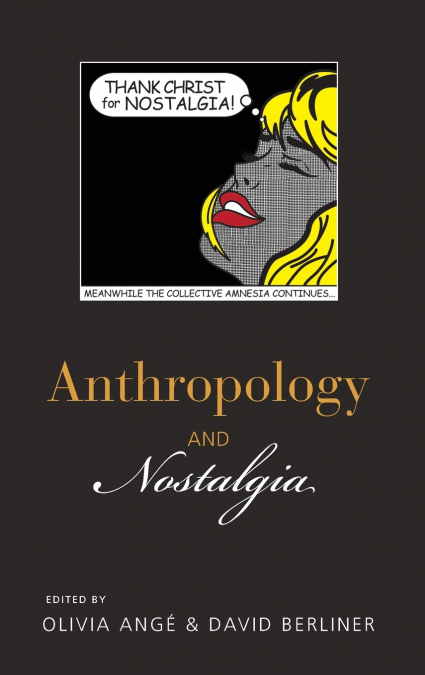
 Librería Perelló (Valencia)
Librería Perelló (Valencia)
 Librería Aciertas (Toledo)
Librería Aciertas (Toledo)
 El AlmaZen del Alquimista (Sevilla)
El AlmaZen del Alquimista (Sevilla)
 Librería Elías (Asturias)
Librería Elías (Asturias)
 Librería Kolima (Madrid)
Librería Kolima (Madrid)
 Donde los libros
Donde los libros
 Librería Proteo (Málaga)
Librería Proteo (Málaga)
'This volume ... risks being a future trend-setter in the anthropological study of memory and temporality, as it captures a historical moment of growing interest (in and outside the academy) regarding nostalgia as a social and political phenomenon, while simultaneously disentangling the multiple understandings and instrumentalisations that the concept entails...' · Ruy Llera Blanes, University of Bergen'The ideas are original, noteworthy, and of value not just to anthropologists, but also psychologists, sociologists and others who are concerned with memory and the social world. Drawing on the experiences of people in a number of countries inevitably provides a breadth of outlooks, and this is to be applauded.' · Nigel Hunt, University of NottinghamNostalgia is intimately connected to the history of the social sciences in general and anthropology in particular, though finely grained ethnographies of nostalgia and loss are still scarce. Today, anthropologists have realized that nostalgia constitutes a fascinating object of study for exploring contemporary issues of the formation of identity in politics and history. Contributors to this volume consider the fabric of nostalgia in the fields of heritage and tourism, exile and diasporas, postcolonialism and postsocialism, business and economic exchange, social, ecological and religious movements, and nation building. They contribute to a better understanding of how individuals and groups commemorate their pasts, and how nostalgia plays a role in the process of remembering.After being a researcher at the University of Oxford, Olivia Angé is now a postdoctoral fellow at the Quai Branly Museum. Her fieldwork in the Andes mainly focuses on barter, ritual and cultural transmission.David Berliner is an Associate Professor of Anthropology at Université Libre de Bruxelles, and the coeditor of Social Anthropology/Anthropologie Sociale. He has conducted ethnographic fieldwork in Guinea-Conakry and Laos. His topics of research are social memory, cultural transmission and the politics of heritage.